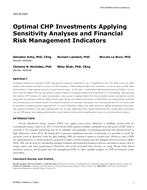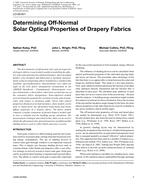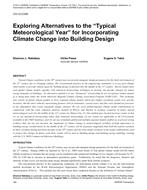This paper investigates the effect of different primary heating/cooling systems and utility rate structures on the thermal performance of a large commercial building located in Saskatoon, Canada. The main component evaluated is the use of hydronic thermal storage. The building investigated is a university building consisting largely of classroom, laboratory and office space. Building thermal performance is investigated using the DOE 2oIB building simulation program. The economic aspects are accounted for using net present value analysis based on standard building cost data and a representative range of utility rate structures. Compared to an optimized conventional system, the thermal storage reduced overall energy consumption when used for both chilled and heated storage. The most important contribution of the thermal storage is the reduction in demand charges due to load shifting. The results show significant financial savings when thermal storage is used with rate structures which have high demand charges.
Units: I-P
Citation: ASHRAE Transactions, 1988, vol. 94, pt. 1, Dallas, TX
Product Details
- Published:
- 1988
- Number of Pages:
- 13
- File Size:
- 1 file , 1.3 MB
- Product Code(s):
- D-DA-88-3140


